What is athlete burnout?
Do you drag yourself to training, feeling exhausted before you even put the pads on? That’s burnout creeping in.
Athlete burnout is when training and competing stop feeling exciting and instead feel like an exhausting chore.
It’s not just being tired – it’s a deep physical and mental fatigue that drains your motivation.
Athlete burnout hit me hard… it was the year after I was too old to play in the U21s age bracket, and I was training a lot… probably too much.
But there was no clear pathway anymore… no age-group representative teams… it felt like I was running in circles
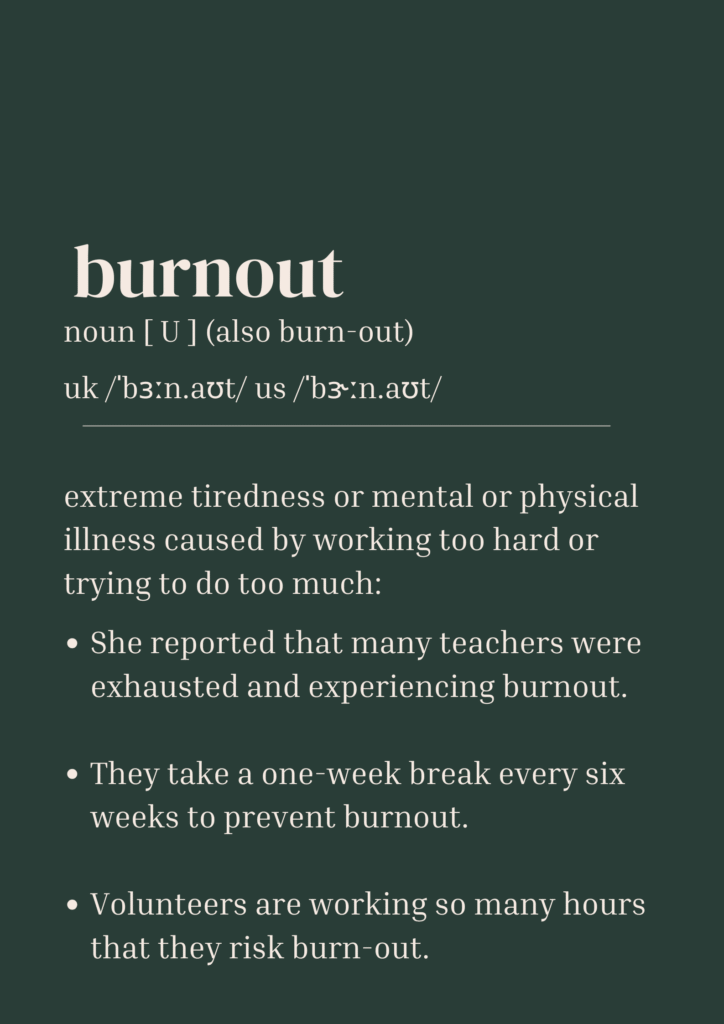
It felt like I was training for the sake of training with no real goal. The thing is, I didn’t really know this at the time.
The weeks just kept stacking up… no breaks… no time to reset.
It felt endless like there was no finish line in sight.
I finally brought my concern up to my trainer, hoping for some guidance… and he casually said he could invite another GK to join if I wanted a break… nothing harsh… no bad intent on his part… it made sense for the session, anyone would have said this.
But I took it the wrong way… I wasn’t thinking straight as I was under so much training fatigue… I felt like I couldn’t step back… goalkeepers are such a competitive position… so I just kept going… even though inside, I was running on empty…
Athlete burnout hits everyone. I’ve been there. Some weeks it felt like I was training for the sake of training, with no clear reason why.
But I’ve found three personal methods that I’ve used in the past that worked for me like…
- reframing my ‘why’ and chasing fun
- talking it out
- taking a proper break
…and then I’ll go over the top science-backed strategy that’s been proven to work.
My Personal Method 1
just have fun
It’s simple: have fun.
Yeah, I know.
You’ve probably heard that a million times. It sounds cliché.
I used to hate it because I didn’t even know what “having fun” was supposed to mean. I feel like it’s a broad term.
But then I realised… for me sometimes it just means showing up.
Sliding around. Talking smack with teammates. Looking at training in a different way.
….reframing
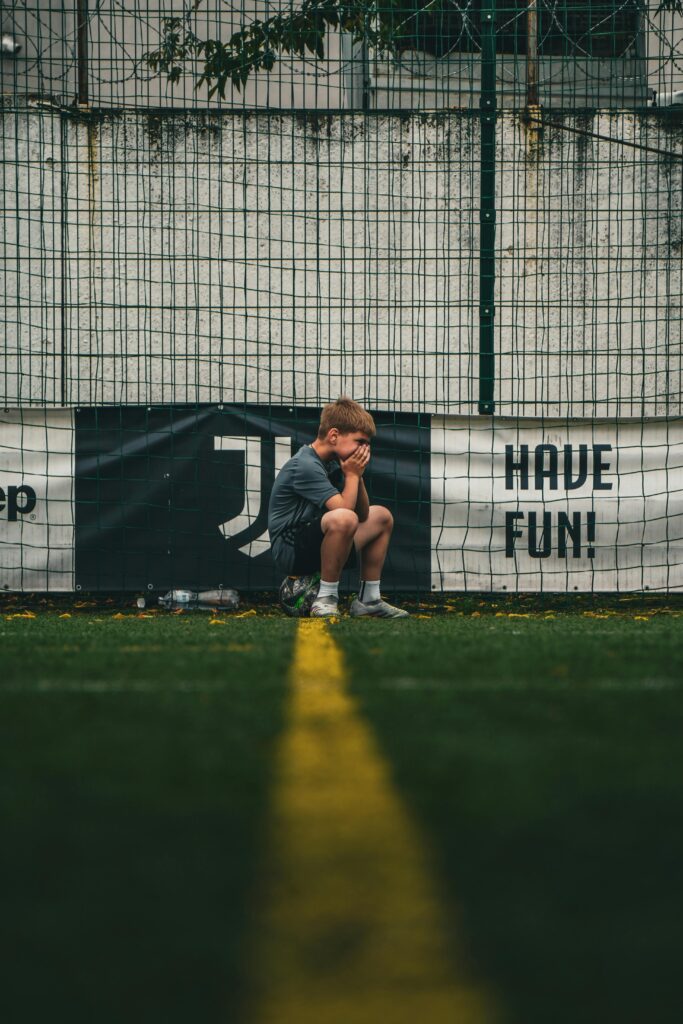
I’d make little games for myself.
- Can I save every shot with just my hands?
- How far can I offset in penalty corners before anyone notices I’m standing so far next to the post?
- Can I hit a ball top bins with just my stick in one hand?
By doing that, training stopped feeling like a grind.
And here’s the best part…
I naturally got better.
Just by being there, standing on the turf, seeing more balls come at me. Having fun wasn’t a cliché anymore. It was a shortcut to improvement.

I asked myself sometimes why I was even training…
So I reframed my WHY.
Why do I play hockey?
For me, it’s simple: it’s fun.
As a goalkeeper, I actually find training more fun than games. Are you the same? But that’s where I get the most joy.
So here’s what I do: I reframe training.
When I’m feeling a burnout coming, for a couple of sessions, or even weeks, I focus only on the parts of hockey I love.
- Crisp glove saves
- Sliding baseline
Sometimes I’ll just grab a teammate and ask them to flick me five balls in the exact way I enjoy saving. Like, I’ll say:
“Send it low stick side – I’m going to dive and make a glove save.”
It makes me feel good, and it reminds me why I love this sport.
And here’s the bonus: even when I’m just chasing the fun, I still get everything else.
- Exposure to shots.
- Fitness.
- Mobility.
- Decision-making.
It’s not as intense – but it keeps me in the game …keeps me in the team.
And speaking of teams…
Do you feel the pressure as a goalkeeper to always show up?
Because you’re a ‘valuable’ member of the training. I feel like if a field player doesn’t show up – it’s just different.
I’ve felt it. A couple of years ago, my club team only had one GK – me!
So yeah, I had to turn up.
Not just for me, but for them. That’s called Entrapment-based commitment.

Think to yourself:
- Do I “want to” show up to training (Attraction-based: natural protective)
or…
- Do I “have to” show up to training and participate (Entrapment-based: natural risk factor)
This model is called the Commitment-Based Model and research shows athletes experiencing “have to” participate in the trainings are significantly more likely to develop burnout than those who “want to” read more here.
Therefore, the trick isn’t grinding harder – it’s structuring your hockey life in a way that keeps you motivated, supported, and ready to perform long-term.
But here’s the thing: sometimes just showing up, sliding around, and having a laugh is more enjoyable than grinding to ‘get better.’
And that’s useful – at least for the sensitive times especially:
- when you’re feeling trapped
- when burnout is knocking at the door.
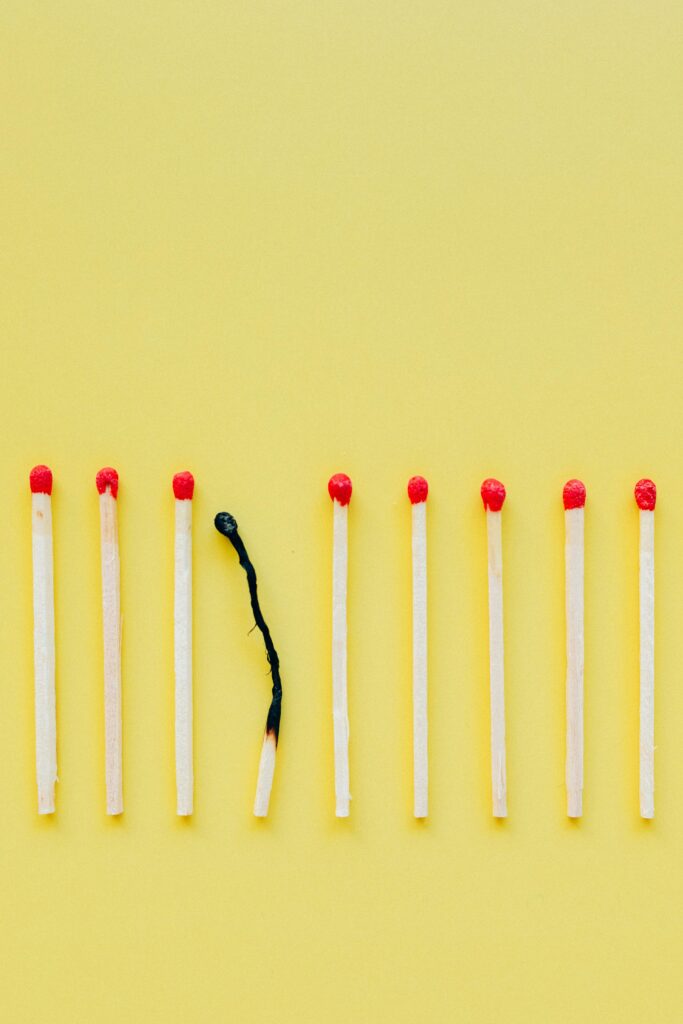
Last year around July, the club season was in full swing and getting close to the end. I was still turning up to the network trainings, but honestly, I felt flat.
The training load had been building for a couple of months with no real break, and I wasn’t excited like I usually was.
I wasn’t even motivated …it was like I was running on autopilot.
One training night it really hit me. I showed up tired, a bit moody, and just slid around the turf instead of pushing myself.
I knew something had to change. The problem wasn’t that I was lazy – it was that I’d lost my ‘why.’ There wasn’t a clear reason for me to be training at this point in the season, therefore I needed to find a new one.
….so, I decided to strip it right back.
For one week, I gave myself permission to stop overthinking and just focus on the parts of hockey I actually love.
Shootouts with the boys, saving a good stroke, and diving around everywhere. The fun stuff.
No pressure, no expectations — just enjoy being on the turf.
That week felt freeing, like a weight had been lifted off my shoulders. Training was suddenly enjoyable again.
But the best part was what came after: by the end of the week, I noticed a shift.
I actually wanted to turn up …I was more motivated, more present, and therefore ready to dive back into proper hockey.
I learnt that, sometimes all it takes is one ‘fun week’ to reset your mindset.
My Personal Method 2
Chat chat talk talk
On a Wednesday morning at work last year, I was walking upstairs to the kitchen… I was thinking about hockey as I’d already had a morning training session and I knew I had another one waiting that evening. I was exhausted and I felt like skipping it.
Then I passed one of my colleagues, and the topic of being tired came up. I know that everyone is always tired… so I wasn’t sure if I should mention my training. But I decided to open up and told him I’d trained three times that week… with three more sessions to go.
He asked questions… he genuinely listened… and we ended up talking hockey for a few minutes. At first, I thought it was meaningless… just small talk… but then something shifted inside me.
By that afternoon, I realised… the weight of more training didn’t feel so heavy anymore.
Therefore, just saying it out loud… admitting what I was struggling with… had eased a pressure I didn’t even realise I’d been holding.
Who knew that opening up a little… could make such a big difference?
I often remind myself that psychological tools like relaxation and positive self-talk aren’t just fluffy ideas… they’re backed by a solid strategy to prevent burnout during a grueling season.

Put simply, I’ve found that sometimes the best intervention is simply to talk to someone.
Whether it’s:
- Venting to your partner
- Calling mum
- Bringing it up with your best mate
- Mentioning it your coach
- Seeing if your teammates are feeling the same
I frequently have chats about how I feel about training with my GK training partner
I find that talking it out really helps… and he often feels the same way.
But why?
I find for me it stops the pressure from building up and gives me space to frame things clearly in my mind.
After a brutal few weeks, just saying aloud what’s bothering you…
- The pressure’s building,
- I’m losing energy,
- I don’t even want to train today
… it can sharpen your sense of what the real problem is.
It can also refrain you from saying something that you shouldn’t have said to your coach or teammates.
Case Study: Social Interaction Related to Athlete Burnout
A study on young weightlifters (aged 17–28) looked at how social support impacts athlete burnout.
The researchers found that:
“Social support could inhibit or prevent athlete burnout via mental toughness and sports motivation; thus, to decrease or relieve the prevalence of burnout in weightlifters, it is an important solution to enhance their social support.”
In my opinion:
Having people around you who listen and support you, such as…
- Coaches
- Teammates
- Friends
- Family
…can strengthen your resilience and motivation. Therefore, creating a strong support network is one of the most effective ways to protect athletes from burnout.
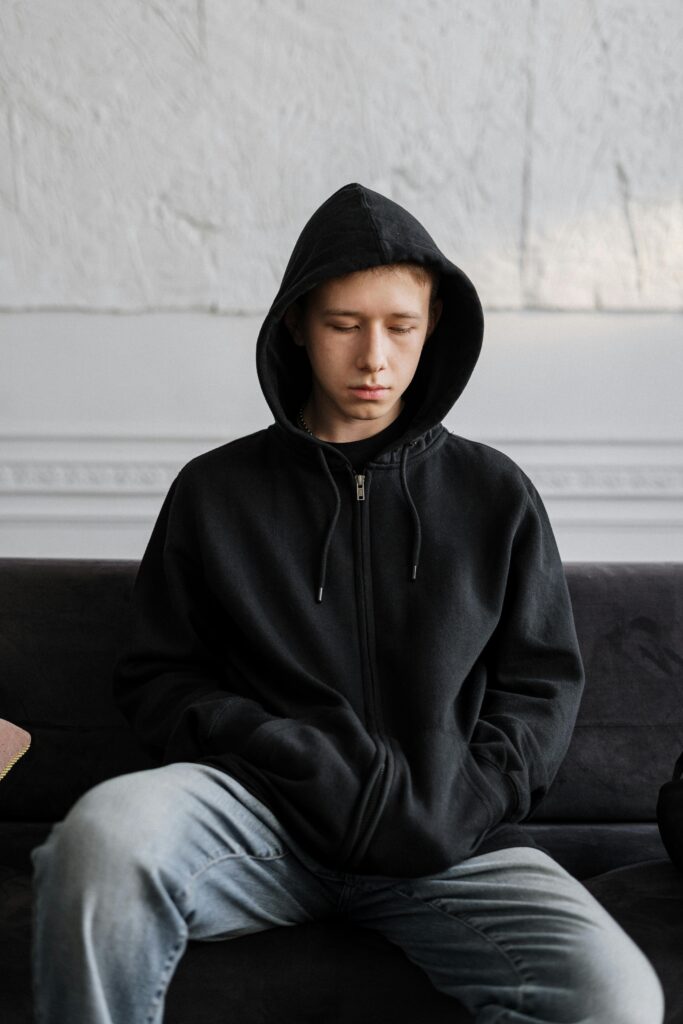
My Personal Method 3
take a break

“You can’t have a rainbow without a little rain.” – Paulo Coelho
Paulo Coelho is a Brazilian author famous for writing The Alchemist, inspiring millions with his philosophical and motivational novels.
Around mid-August last year, the club season had just finished. The weeks leading up to the club Grand Final had been intense and the team’s energy and focus had doubled as we chased another championship win.
We trained hard, played hard… three games in three weeks… and by the end, I felt completely drained.
I was flying up for the National Hockey Competition in the second week of September, but in all honesty… I wasn’t looking forward to it.
My body was sore… my mind was tired… and I felt completely burnt out.
However, there were more trainings scheduled… more goalkeeper-specific sessions planned… therefore, I would be in a continuous run right up to the tournament.
My goalkeeper training partner had even organised two more morning GK sessions per week over the next three weeks, which would usually have been perfect. But this time, I just wasn’t keen.
So I made a choice. I put myself first.
I told him I was going to take a two-week break from training… just to recharge and rebuild my motivation for the tournament. And it worked. By the second week, I was so excited to return that I trained Thursday and Friday of my “break” week.
See how quickly motivation can come back?
Sometimes all it takes is giving yourself permission to step back and reset once you know your schedule.
Speaking of knowing your schedule…
I know the structure of my year really well… and I use it to plan my training blocks, tournaments, and importantly, my breaks.
I know exactly when the leagues and tournaments happen… and that helps me spot the low points in my year.
I build my schedule around the big pushes
…this means I also schedule time off after them – for moments to recharge and reset.

For example, after the club season ended last year, following an intense run up to the Grand Final, I felt completely drained. Three weeks of high-intensity training and three games had pushed me to my limits… I knew I needed a break before the national representative campaign started. Another example is the Christmas and New Year period… that’s another time I switch off completely.
During these breaks, I make sure to truly relax and don’t play any hockey at all… because I know it’s coming soon.
Halfway through the 2023 season, I took a full week off… and it felt amazing. At first, I felt guilty for stepping back, but almost immediately, relief took over. I could focus on other things e.g. working on my truck, catching up on life admin, and spending time with my partner. I returned feeling refreshed and motivated.
I can still stay active. I’ll run, hit the gym, or do mobility work …but no hockey!
Giving myself that pause helps me recharge mentally and physically. When I return, I feel ready to go full throttle again.
That week off reminded me how quickly motivation can return – and how essential it is to step back before burnout takes hold of me!
You can take large breaks like this or you can take small breaks.
If you feel like the burnout is coming…
Just take a training off.
Miss a game if you need to.
Exercise that ✨freewill✨ of yours. As long as you’re taking a real break… it’s worth it.

Do something that actually comforts you.
- Cook
- Watch YouTube
- Work on hobbies
- Get some admin done
- Housework
- Netflix
- Walk your dog
- Or do nothing… just sit at home on your phone (honestly).
Doing nothing can be exactly what your body and brain need.
Some people will say you’re not disciplined but I call it ✨structured sustainability ✨.
If you’re skipping sessions out of laziness… sure, I get the point.
But if you take a couple of trainings off and it lets you crush the following weeks with more energy and focus… to me that’s a good investment.
Missing a few sessions now can pay off big later. Simple as that.
This isn’t just a break from hockey… it’s a break from life.
Speaking of a ‘break from life’…
Have you ever pulled up outside your house, sat in your car, and just stayed there on your phone… not wanting to go inside? You’re not alone.
When this happens, it’s worth asking yourself why. Why do I want this little bubble of time to myself? Why don’t I want to go inside to talk to people, have a shower, or eat dinner?
Is it because those things take energy? Are you just plain tired? Or do you just need a moment to be alone and unwind?

This behaviour is called “decompression time” or “transition time”. It’s a brief mental break between the demands of work or school and home life. Psychologists also link it to “time poverty”, the feeling of not having enough free time.
So next time you find yourself lingering in your car, remember that it’s not laziness. It’s your brain asking for a moment to breathe, reset, and recharge. Just like life sleeping.
Speaking of sleeping…
My favourite sleep expert to listen to is Matt Walker. I first listened to him as a guest on my favourite podcast Huberman Lab from this episode.
The best thing I’ve heard from him was something along the lines of:
“I wish I could prescribe sleep.”
This really resonated with me.
I sleep a lot when I’m beginning to feel burnt out. Early nights especially.
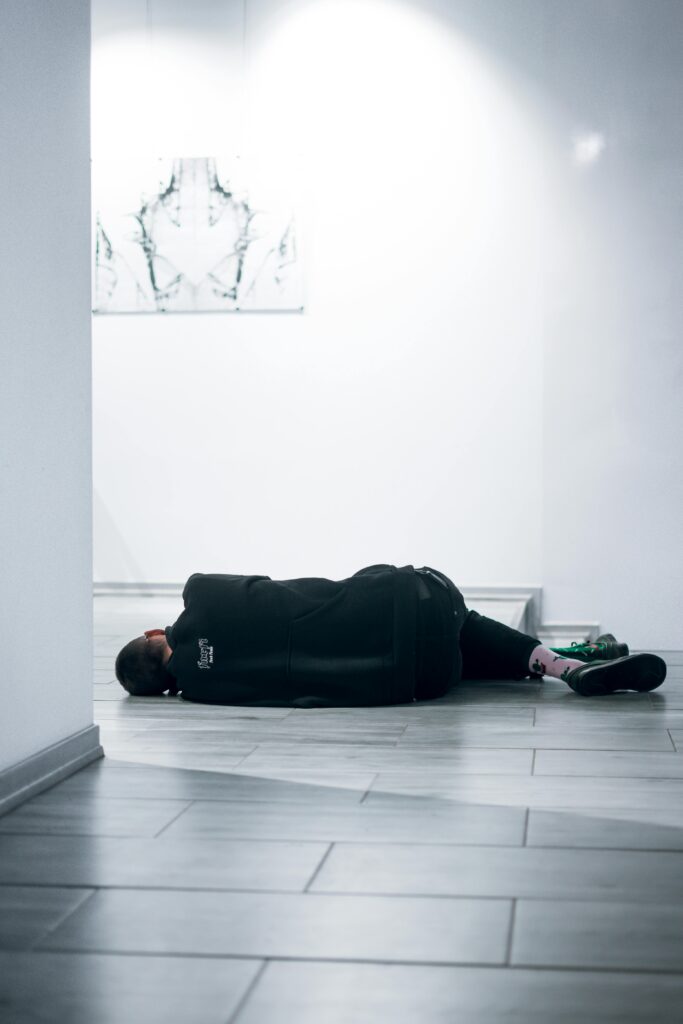
This Sleep Hygiene for Optimising Recovery in Athletes study showed that Sleep hygiene plays a fundamental role in burnout prevention. Key recommendations include:
- 9 hours of nightly sleep for athletes
- Consistent sleep schedules supporting circadian rhythms
- Sleep-friendly environments (dark, quiet, cool)
- Strategic napping (20-90 minutes) between training sessions
Scientific Method 4
Strongest scientific evidence on how to best prevent athlete burnout
This systematic review and meta-analysis research highlights a key finding:
Cognitive Behavioural Therapy (CBT) emerges as the most effective psychological intervention to combat athlete burnout.
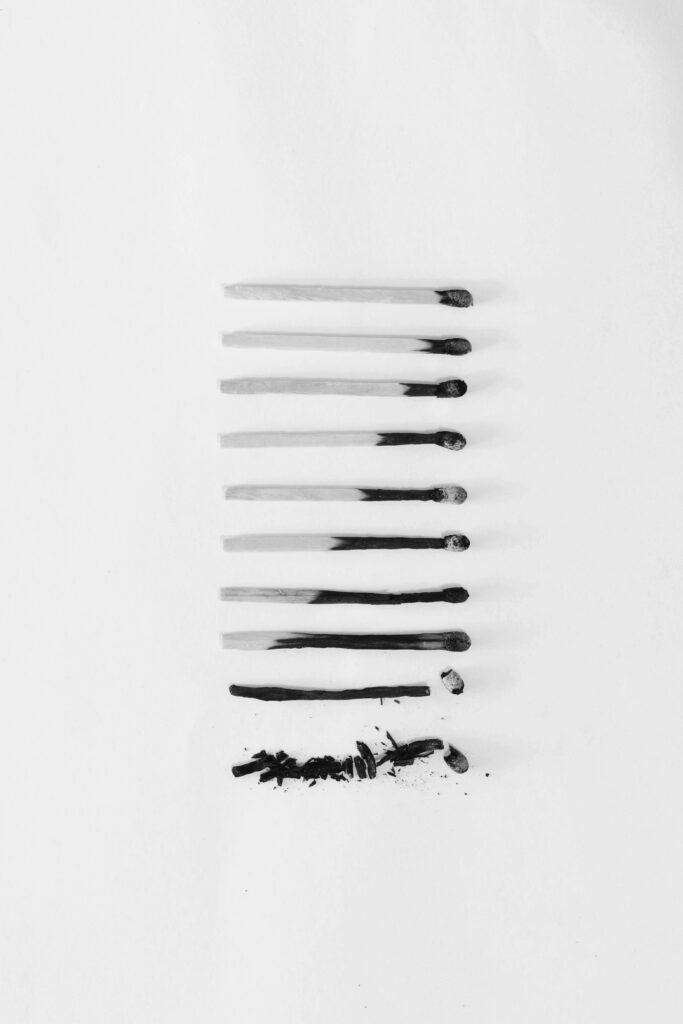
CBT helps athletes identify unhelpful thought patterns such as:
- fear of failure
- negative self-talk
…and replace them with more balanced, constructive thoughts like:
- Mistakes are opportunities to learn, not a reflection of my worth.
- I can focus on what I can control, one play at a time.
It teaches practical coping strategies such as reframing setbacks as learning opportunities rather than personal shortcomings.
CBT focuses on setting realistic goals and breaking them into manageable steps.
It combines mental techniques with action plans – therefore athletes learn to regulate stress and maintain motivation.
The overall benefit from carrying out CBT is how it strengthens athletes’ resilience …making athletes less vulnerable to burnout.
Here are two examples of the behavioural theory in use in a field hockey setting:
Broad Example
- Identify Negative Thoughts
You think: “This season feels endless, I’m exhausted, and my goal scoring is only getting worse.”
Identify this negative thought and write it down
- Challenge & Reframe It
Instead of accepting it, you ask: “Is my goal scoring really getting worse, or am I just tired this week? What evidence do I actually have?” You might look at match stats or recall solid performances from recent games …or even trainings.
- Reframe into something balanced
New thought: “The season is long, but I’ve prepared well. Fatigue is normal, and I can manage it by focusing on recovery and one game at a time.”
- Behavioural Practice
Based on this reframe, you make a concrete plan: you schedule an early night before matches, add an active recovery session (light jog, mobility work), and set mini-goals like “win 70% of my tackles this game” instead of worrying about the entire season.
- Build a cycle of reinforcement
Each time you complete a recovery routine or hit a mini-goal, you note it down in a journal. This reinforces the reframe: “I’m coping with the season and still achieving small wins.”
Now for a goalkeeper example:
- Identify Negative Thoughts
You think, “I’m letting so many dragflicks in, so I’ll probably let this one in too.”
Identify this negative thought and write it down.
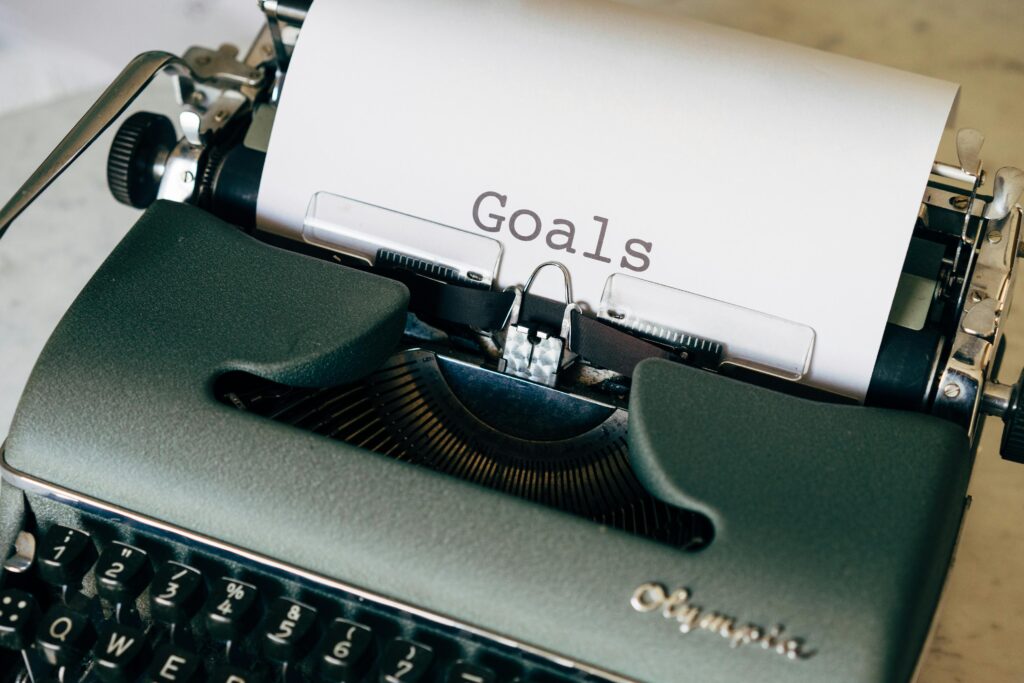
- Challenge & Reframe It
Instead of accepting this as truth, ask yourself: “Is this always true? What evidence do I have?”
Reframe: “I’ve saved corners before, and I know my positioning. Even if one goes in, I can adjust.”
- Reframe into something balanced
Translate the new thought into action. In training, you deliberately practise penalty corners with a focus on one positive cue, like “stay balanced and focus on the ball.”
- Behavioral Practice
Break the challenge into smaller goals. Instead of “I need to save every single dragflick,” you say: “I’ll stay focused on making the correct first move toward the ball with my bodyweight.” Small wins build confidence.
- Build a cycle of reinforcement
During matches, when nerves rise, you use a CBT routine: notice negative thought → reframe → repeat positive cue (“I’m ready, I know my angles”). This keeps you focused on controllable actions rather than fear of mistakes.
Over time, this CBT process helps you manage the mental grind of a long season by shifting focus from “I’m stuck in this endless fatigue” to “I have tools and small wins to carry me through.”
Conclusion
Burnout hits everyone at some point, but it doesn’t have to knock you out.
I’ve learned that keeping things fun, leaning on the people around me, and giving myself permission to take breaks is what keeps me fired up for hockey.
Burnout isn’t something you just push through – it’s something you manage, notice, and prevent. Over the years, I’ve found that:
- Fun
- Support
- Smart breaks
keeps me motivated and enjoying the game I love.
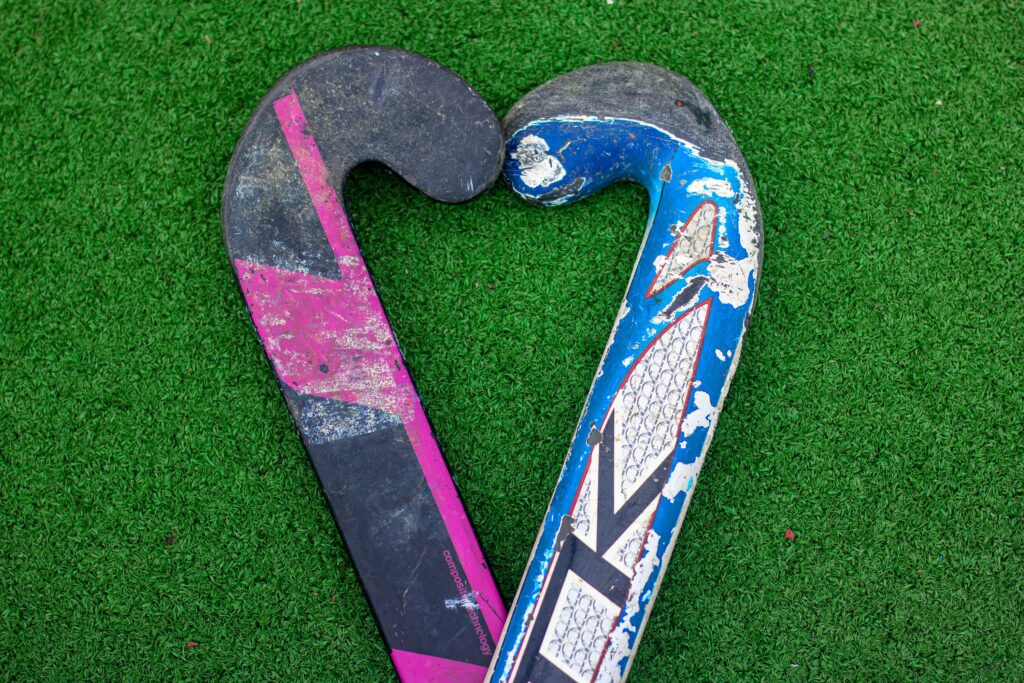
Listen to your body, trust your mindset, and remember it’s okay to step back, reset, and come back stronger.
Want to dive deeper? Check out my other articles for more tips, stories, and strategies to stay motivated, prevent burnout, and keep loving the game you play.

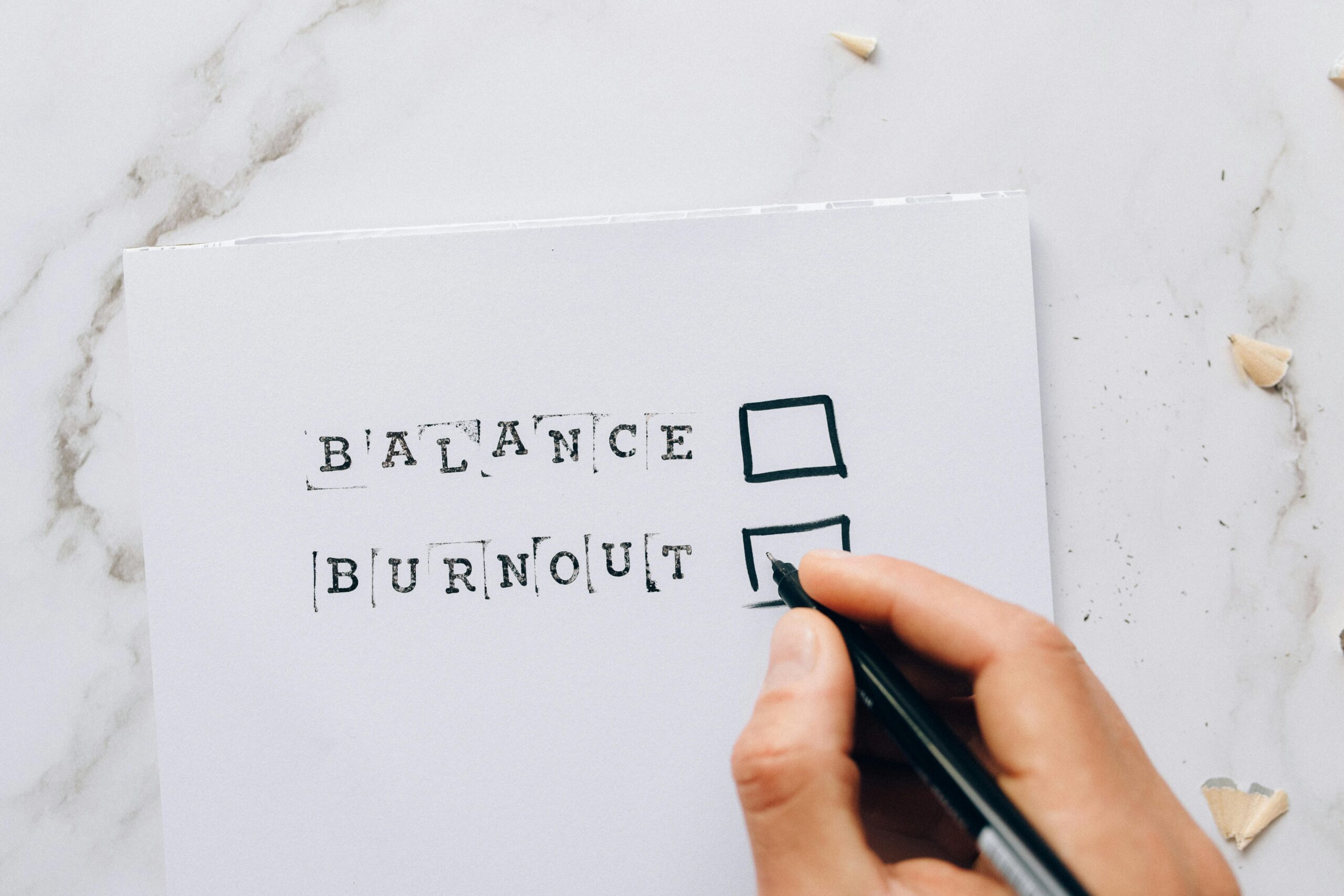
Leave a Reply
You must be logged in to post a comment.